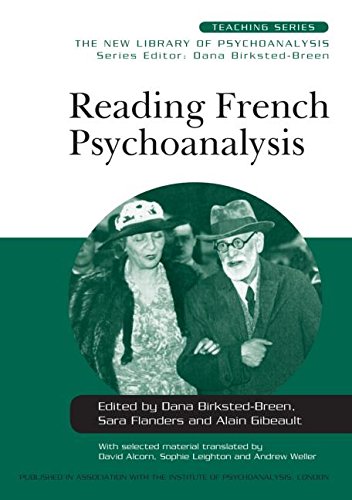

Most ebook files are in PDF format, so you can easily read them using various software such as Foxit Reader or directly on the Google Chrome browser.
Some ebook files are released by publishers in other formats such as .awz, .mobi, .epub, .fb2, etc. You may need to install specific software to read these formats on mobile/PC, such as Calibre.
Please read the tutorial at this link: https://ebookbell.com/faq
We offer FREE conversion to the popular formats you request; however, this may take some time. Therefore, right after payment, please email us, and we will try to provide the service as quickly as possible.
For some exceptional file formats or broken links (if any), please refrain from opening any disputes. Instead, email us first, and we will try to assist within a maximum of 6 hours.
EbookBell Team

4.1
60 reviewsHow has psychoanalysis developed in France in the years since Lacan so dramatically polarized the field?
In this book, Dana Birksted-Breen and Sara Flanders of the British Psychoanalytical Society, and Alain Gibeault of the Paris Psychoanalytical Society provide an overview of how French psychoanalysis has developed since Lacan. Focusing primarily on the work of psychoanalysts from the French Psychoanalytical Association and from the Paris Psychoanalytical Society, the two British psychoanalysts view the evolution of theory as it appears to them from the outside, while the French psychoanalyst explains and elaborates from inside the French psychoanalytic discourse. Seminal and representative papers have been chosen to illuminate what is special about French thinking. A substantial general introduction argues in favour of the specificity of 'French psychoanalysis', tracing its early influences and highlighting specific contemporary developments.
Sections are made up of introductory material by Alain Gibeault, followed by illustrative papers in the following categories:
An excellent introduction to French psychoanalytical debate, Reading French Psychoanalysis sheds a complementary light on thinking that has evolved differently in England and North America. It will be ideal reading for beginners and advanced students of clinical theory as well as experienced psychoanalysts wanting to know more about French Psychoanalytic theory, and how it has developed.